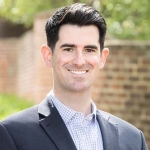Learn more about why you should apply to teach a University Seminar, the available funding, and how to apply.

University Seminars
For more than a decade, the University Seminar (USEM) program has provided an opportunity for undergraduate students to take unique seminar style courses in a variety of topics taught by faculty from any of the University’s twelve schools. University Seminar faculty engage students in discussion, hands-on experiential learning, research, and in critical self-reflection that helps students shape the direction of their studies at UVA.
University Seminars are one-credit courses available to second- and first-year students. USEM courses are offered during both the fall and spring semesters, are capped at 18 students, and are offered on an open enrollment basis to any second- or first-year student interested in the topic of the course. It is expected that these courses will help students develop critical thinking skills and explore new ideas in an environment that encourages interactive learning and intensive discussion. Enrollment in a University Seminar should provide second- and first-year students the opportunity to work closely with faculty and to develop an intellectual community with other students around a shared area of interest.
Please refer to the USEM course listings within SIS for course meeting times.
Learn more about why you should take a University Seminar and what you need to know before enrolling.

P.O. Box 400308
Booker House
Charlottesville, VA 22904-4308
 Provost
Provost